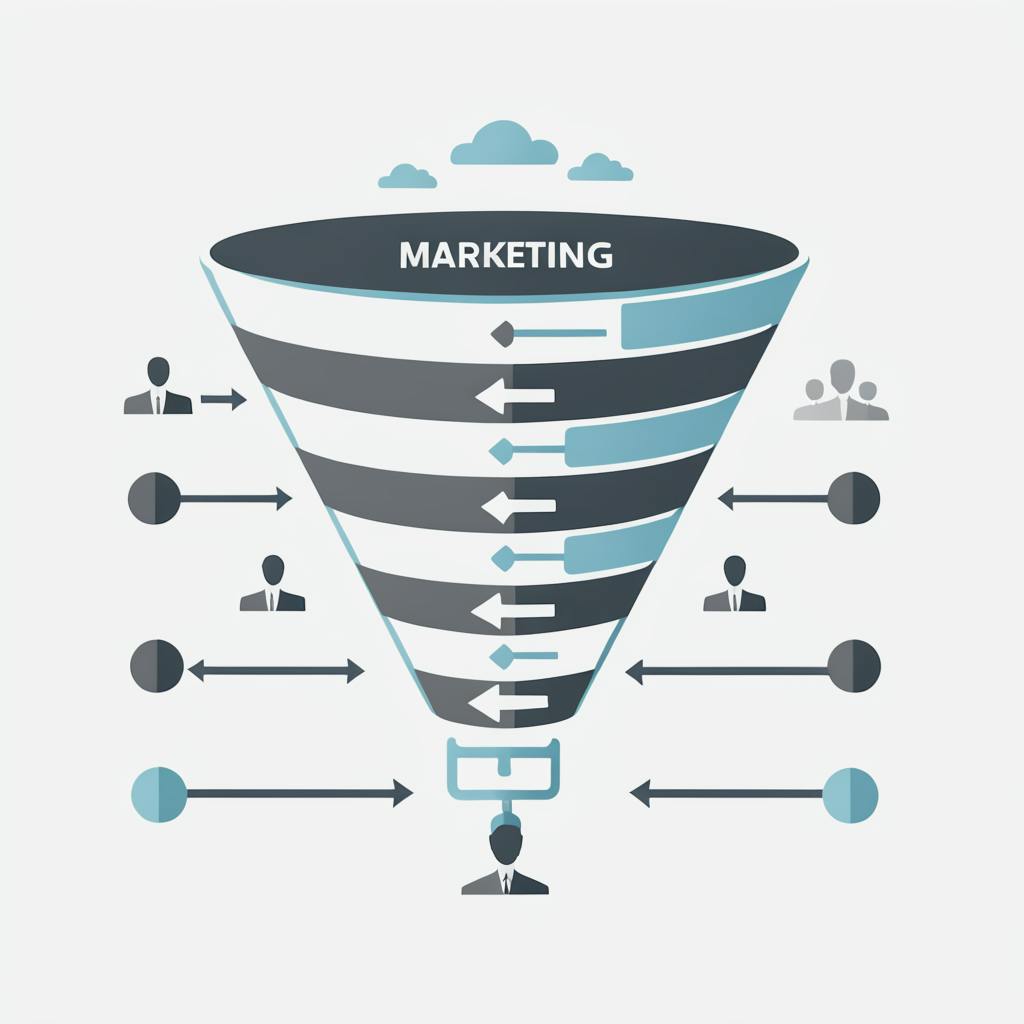In the bustling marketplace, businesses are continually in pursuit of one holy grail: brand loyalty. As companies strive to carve out their niche, the question that looms large is how to transform casual shoppers into unwavering, repeat customers. Establishing brand loyalty is not just about repeat purchases; it's about creating a deep emotional connection between the brand and its consumers. Let's decode the essence of brand loyalty, explore why it matters, and unravel the strategies that make it possible, all while understanding the nuances of brand affinity versus brand loyalty.
Brand Loyalty: What Sets It Apart?
To establish clarity, it is crucial to understand the subtle differences between brand affinity and brand loyalty. While brand affinity speaks to a consumer's preference or inclination towards a particular brand, brand loyalty denotes a long-term commitment. A customer may have brand affinity due to interest or attraction, but brand loyalty implies a dedicated preference that withstands alternatives and often leads to repeat business.
Building a Loyal Customer Base
Creating brand loyalty requires a well-devised strategy. Here’s a distillation of core principles that can turn the tide in favor of your brand:
- Deliver Consistent Quality: Ensure that your product or service is consistent in quality and meets the promises your brand makes. Customers stick to brands that reliably deliver on their expectations.
- Enhance Customer Experience: Go beyond mere transactions. Craft memorable experiences at every touchpoint—from the first online interaction to after-sales service. Engaging experiences foster strong emotional bonds with customers.
- Engage in Authentic Communication: Maintain open, transparent, and genuine communication with your audience. Building trust in your brand narrative can compel customers to choose you over competitors time and again.
- Reward Loyalty: Implement loyalty programs that reward repeat purchases or referrals. When customers perceive value in staying, they're more likely to remain loyal.

AI made with Stephanie Jagiello
Why Brand Loyalty Matters
Why is brand loyalty worth the investment? Loyal customers are not only frequent buyers; they often become advocates for your brand. They contribute to stable revenue streams and are less sensitive to price changes compared to casual shoppers. Moreover, they provide valuable feedback and insights, acting as partners in your brand’s growth journey.
Proven Practices: Success Stories
Case studies from successful brands across different industries serve as credible testaments to the power of brand loyalty. Take Apple, for instance, whose customers consistently exhibit high levels of brand loyalty. Apple's strategy of product innovation coupled with an exceptional customer experience has maintained its strong user base. Likewise, Starbucks thrives on fostering community and personalized experiences, making it a quintessential model of cultivating loyalty.
Addressing Frequently Asked Questions on Brand Loyalty
How do you measure brand loyalty?
Brand loyalty can be gauged through metrics such as repeat purchase rates, customer lifetime value, and net promoter scores. These metrics provide insight into customer behavior and their allegiance to your brand.
Is brand affinity enough to drive sales?
While brand affinity can generate interest and initial sales, it lacks the sustainability of brand loyalty. Loyalty nurtures a committed relationship that extends beyond fleeting interests.
Frequently Asked Questions About Brand Loyalty
Brand loyalty is a fundamental aspect of a successful business strategy, as it not only helps in retaining customers but also in transforming them into advocates for your brand. This FAQ article delves into important questions surrounding brand loyalty and provides insights on how to enhance it effectively.
What are some effective strategies for converting casual shoppers into devoted customers?
- Offer Exceptional Customer Service: Providing outstanding customer service is a cornerstone of building brand loyalty. Ensure your team is well-trained to handle queries and resolve issues promptly, leaving customers with a positive experience each time they interact with your brand.
- Create a Personalized Experience: Utilize customer data to personalize shopping experiences. Personalization can be in the form of tailored product recommendations, personalized email campaigns, or even personalized discounts. This makes customers feel valued and understood, fostering loyalty.
- Implement a Loyalty Program: Develop a rewards program that incentivizes repeat purchases. These programs can offer points for purchases, special discounts, early access to sales, and exclusive deals to encourage customers to return.
- Engage on Multiple Platforms: Maintain an active presence on social media and other platforms to engage with your audience. Sharing valuable content, responding to comments, and creating a community around your brand can deepen customer relationships.
- Consistency in Quality and Experience: Deliver consistent product quality and customer experience. When customers know what to expect with every interaction, they are more likely to become repeat buyers.

AI made with Stephanie Jagiello
How can understanding brand loyalty help improve my business?
Understanding brand loyalty offers several benefits that can significantly improve your business:
- Increased Customer Retention: By comprehending what keeps customers coming back, you can implement strategies to increase retention rates, which are typically more cost-effective than acquiring new customers.
- Enhanced Customer Lifetime Value: Loyal customers tend to spend more over their lifetime with your brand. Recognizing loyalty drivers can help you maximize this potential revenue.
- Improved Brand Advocacy: Loyal customers are often your best promoters. By understanding what makes them loyal, you can amplify their advocacy, harnessing word-of-mouth marketing, which is highly credible to prospective customers.
- Insights for Product and Service Development: Feedback from loyal customers can provide valuable insights into areas of improvement or innovation in your products and services, aligning them closely with customer needs.
What does it mean to 'decode' brand loyalty and how can it affect customer retention?
To 'decode' brand loyalty means to analyze and understand the underlying motivations and behaviors that drive customers to remain loyal to a brand. This involves collecting and examining data related to customer interactions, preferences, and feedback to identify patterns and trends.
Decoding brand loyalty can positively impact customer retention by:
- Tailored Customer Engagement: By understanding loyalty drivers, businesses can create targeted engagement strategies that resonate with their customer base.
- Proactive Problem Solving: Recognizing potential pain points and addressing them proactively can prevent customer churn and enhance satisfaction.
- Optimized Marketing Strategies: Insights from loyalty analysis can guide more effective marketing campaigns, focusing resources on the most impactful areas for customer retention.
What are the key factors that influence brand loyalty among consumers?
Several factors contribute to brand loyalty, including:
- Customer Experience: The overall experience a customer has with your brand, from the shopping process to customer service, plays a crucial role in their loyalty.
- Product Quality and Reliability: Consistently high-quality products that meet or exceed customer expectations are a significant determinant of brand loyalty.
- Emotional Connection: Creating an emotional bond with customers through your brand story, values, and personalized interactions can profoundly influence loyalty.
- Value for Money: Offering competitive pricing, value additions, or superior quality for the price charged can enhance the perception of value, bolstering loyalty.
- Trust and Transparency: Building trust through transparent business practices, authenticity in branding, and reliability strengthens customer loyalty.
By focusing on these factors, businesses can cultivate a loyal customer base that provides long-term value and a sustainable competitive advantage.
To wrap up, achieving brand loyalty is a journey that requires a deep understanding of your audience and an unwavering commitment to delivering value. By focusing on quality, customer experience, authentic communication, and rewarding loyalty, businesses can unlock the door to customer devotion. As casual shoppers transition into loyal advocates, the ripple effects can result in long-term success and a thriving brand presence in the market. In the end, brand loyalty isn't just about repeated transactions but about creating a lasting legacy of trust and preference.
Building brand loyalty is not an overnight feat; it is a strategic endeavor that pays dividends in customer engagement, advocacy, and sustained revenue. In the evolving landscape of consumerism, fostering genuine connections has never been more pivotal.

